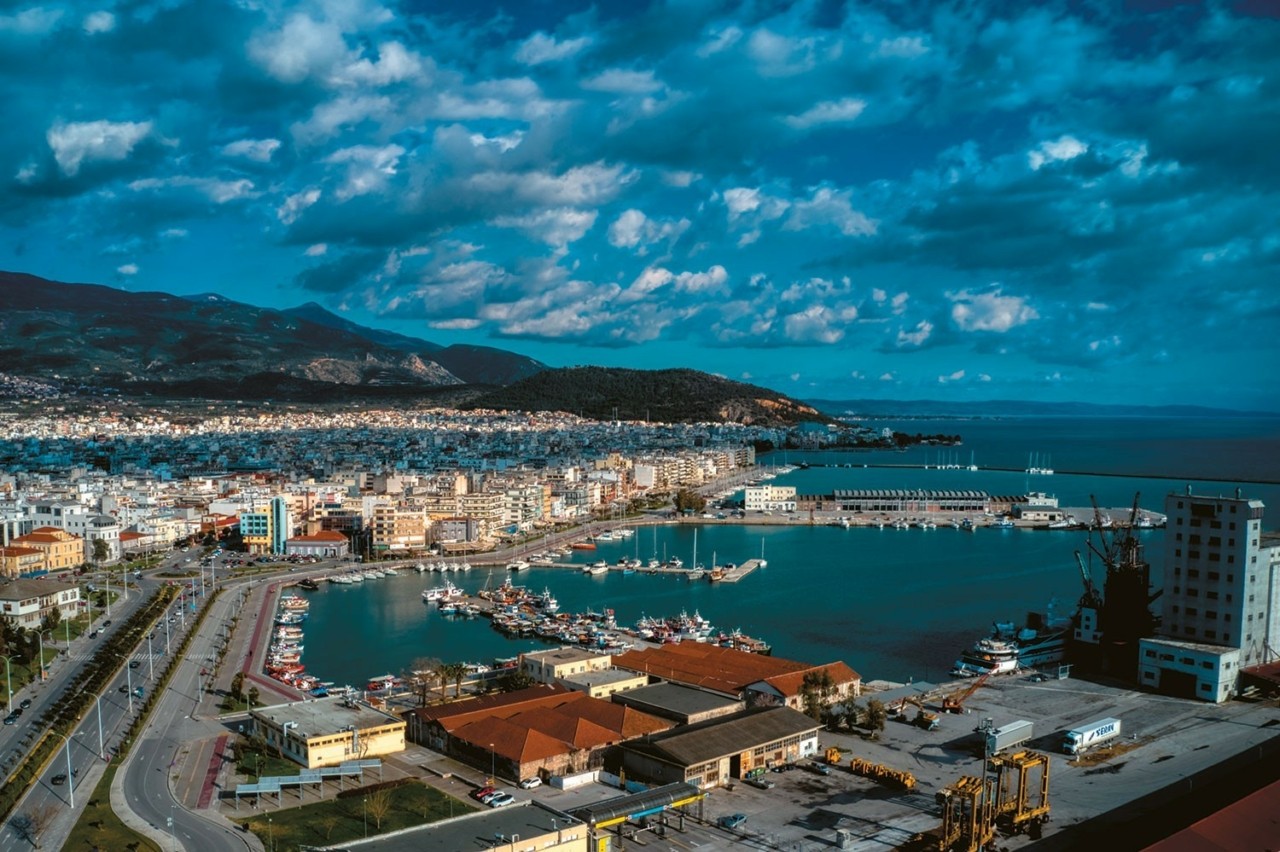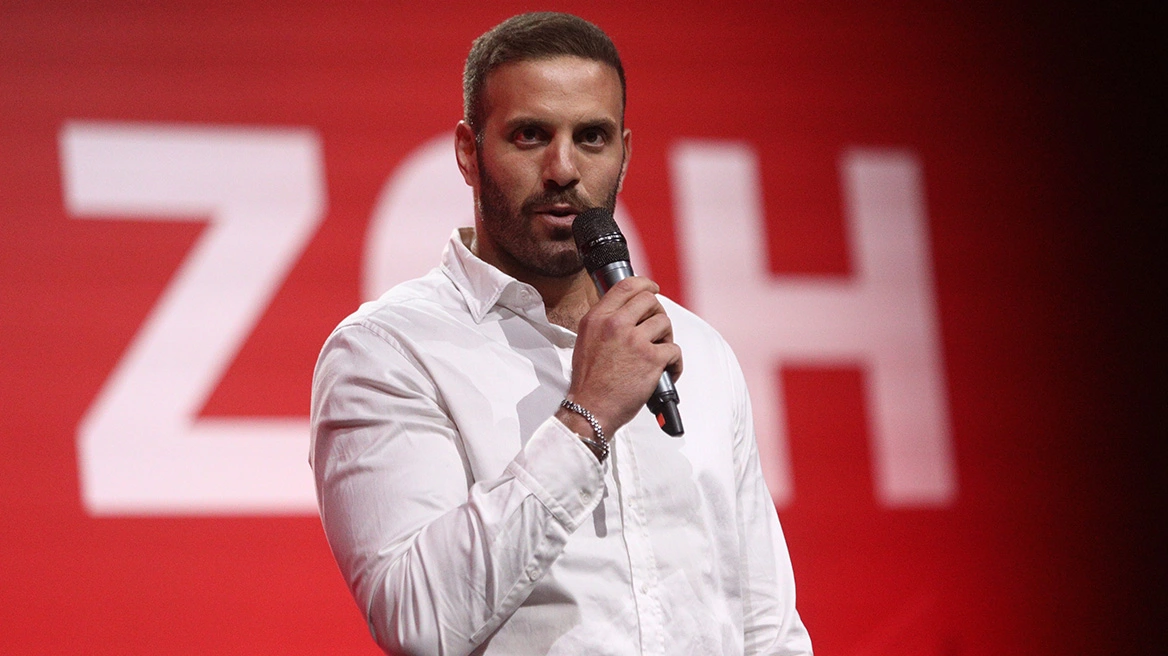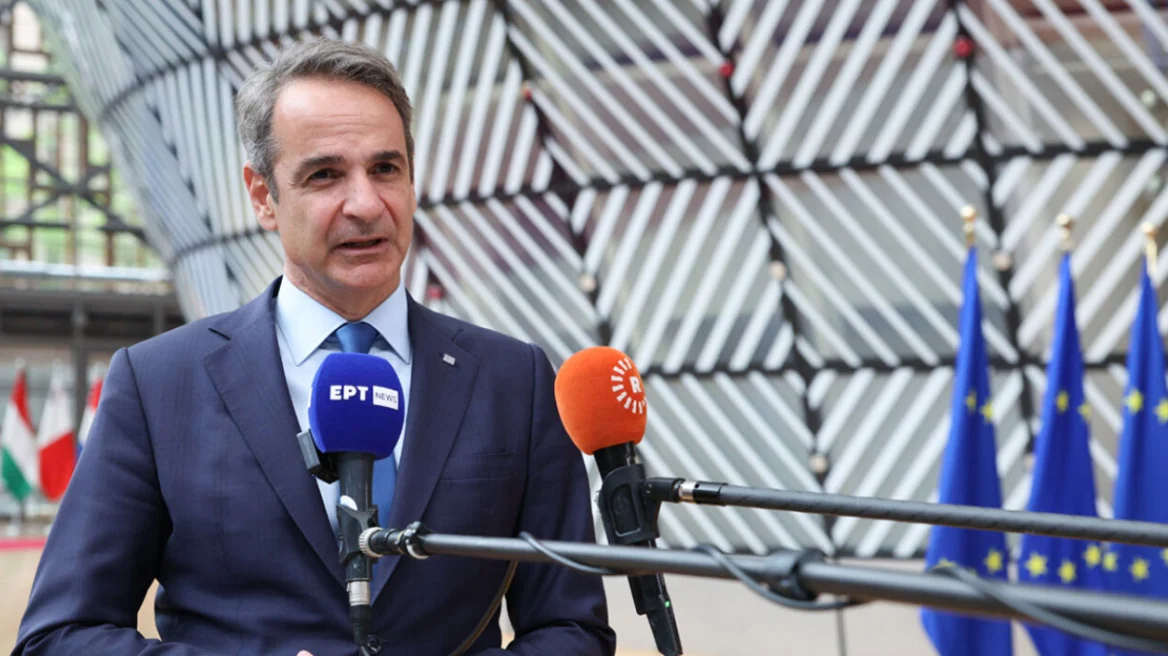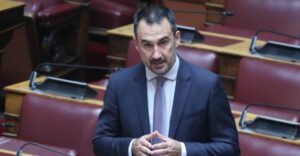Hello! So, a few days ago, I wrote to you about the Christmas spirit making its timely appearance (right on cue as we approach the holidays…). It has been felt in political life, suddenly in the media (let’s see how long that lasts), and, as of yesterday, among the MPs of New Democracy. The meeting of K.M. (Kyriakos Mitsotakis) with them went very well—smiles, selfies, and casual chit-chat about this and that (a little Lebanon, a little Syria, a little Recovery Fund)—and we’re all one big happy family, waiting for:
a) The selection of a President of the Republic (that we all need to vote for), and
b) The subsequent cabinet reshuffle, in which it’s hoped that around 7-10 MPs will be promoted to deputy ministers, and maybe even ministers, replacing some of the non-parliamentary ministers currently holding office but not contributing much.
And the Reshuffle?
So, now you might ask, what kind of reshuffle is this going to be? Well, the answer is that I could list everything I’ve heard, you could read it, and then recycle it over festive dinner conversations—but that doesn’t mean Mitsotakis will necessarily follow through with it. Honestly, I think the thread of the reshuffle starts with Gerapetritis and whether K.M. will bring him back to the Maximos Mansion (the Prime Minister’s office) or not. One source tells me that Gerapetritis himself is very keen on returning to his old position, which of course matters.
If that happens, there’s one scenario in which Hatzidakis moves to the Ministry of Foreign Affairs, Pierrakakis to the Ministry of Economy, and Christos Dimas to Education, etc., etc. But let me tell you, I personally wouldn’t hold my breath for such predictions. Columns like this are meant to feature such entertaining reports—or “reports”—that often turn out to be baseless chatter and are far from official government gazettes.
The Arrival of Pavlos
A major stir was caused by yesterday’s revelation that Pavlos (the eldest son of the former King of Greece) has decided to apply for Greek citizenship—a development that constitutes… a great victory for Democracy, considering that he will finally acquire a last name. I’d argue that this is a collective national fixation we’ve failed to resolve for 50 years—unlike every other civilized Western country.
As of yesterday, the firstborn son of the former King is in Athens, and it’s not unlikely that he’ll head to the Athens Registry Office with Nikolaos, as it seems acquiring citizenship is a family decision. What Pavlos hasn’t shared with his interlocutors, however, is which surname he has chosen, as this is a prerequisite for identification along with recognition of the Constitution, the form of government, and the 1974 Referendum decision. The entire family will have to file similar applications, and any grandchildren born after citizenship is acquired will automatically inherit it.
Pavlos’s Last Name
A reliable source tells me that the surname Pavlos has chosen for his family is “Di Grecia,” as it appears on the Danish passports held by members of the former royal family. Of course, when asked about this, Pavlos offers “no comment,” avoiding delving into the issue while not denying the information either.
The Banks and the Fallout
The greatest loss for the banks from the recent measures isn’t financial—though it’s not negligible—it’s the communication storm they faced from the political leadership and the press. This has tarnished the industry’s image in a way that cannot be immediately repaired. To be fair, the €100 million for the property entity, as well as the €100 million for schools, had already been put on the table by the banks. Another issue they raised was related to the procedures for the “My Home” program.
Specifically, on July 5, 2023, the banks proposed to the government that the engineering certificate requirement be waived for applicants seeking to purchase apartments under the “My Home” program. They even submitted two alternative amendment drafts for this waiver, which would apply only to program beneficiaries. The proposal was made because the banks had identified that “My Home” required contract signings to be completed within 6 to 8 months of eligibility approval—a timeframe often insufficient for property legalizations due to bureaucracy.
The Battle for Viva Continues in London
The legal battle between WeRealize (WRL), owned by Haris Karonis and Makis Antypas, and JP Morgan over Viva continues unabated. The two shareholders of the Greek fintech filed an appeal against the London High Court’s June ruling on the fair valuation of the company.
According to the legal-focused Law360, both sides took issue with aspects of the initial decision. The appeal hearings began on Monday in London, where JP Morgan’s legal team (Freshfields law firm) argued that Viva’s valuation should not include a future U.S. expansion plan. Meanwhile, WRL’s lawyers (from Quinn Emanuel Urquhart & Sullivan) claimed that JP Morgan has blocked Viva’s U.S. entry and hindered updates to its business plan, which would significantly boost the fintech’s valuation.
The dispute centers on Viva’s valuation and which financial figures independent appraisers should use to determine its fair value in a potential sale, as well as the weight of the current business plan. It was revealed in court that any changes to Viva’s business plan require the consent of both shareholders. WRL argued that JP Morgan vetoed any modifications to the plan.
The clash essentially revolves around the terms of the call option as part of JP Morgan’s acquisition of 48.5% of Viva, announced in 2022, which valued the fintech at €1.7 billion. According to disclosed terms, WRL forfeits its right to reject any Viva acquisition by JP Morgan if Viva’s valuation falls below €5 billion by the end of the fourth call option period in July 2025. The hearings continue.
Signatures for the VOAK before the end of Q1 2025
Demanding procedures and a tight timeline are in place for the implementation of the major concession project Chania-Heraklion, which will become the most complex closed highway constructed in Greece in the coming years. The Northern Road Axis of Crete (VOAK) took center stage recently, as it was the focus of discussions during meetings between the Prime Minister and the political leadership of the Ministry of Infrastructure and Transport in Crete. According to the latest plans, the contractual documents for the Chania-Heraklion section are nearing completion and are expected to be finalized by the end of January. At this stage, the provisional contractor, GEK TERNA, is submitting the necessary information to secure its designation as the final bidder. The relevant documents have already been sent to the European Commission for Competition to provide an opinion on the project, and it is estimated that the contract will not be signed before the end of Q1 2025.
Industry insiders describe VOAK as a highly challenging project due to the lack of studies and the need for a new route design to address construction difficulties and local opposition. This complexity is one of the reasons why construction companies (GEK TERNA, AKTOR, and METKA) have reached an agreement on managing the project and dividing their shares in both construction and the concession. This agreement is expected to be formalized after the contract signing, meaning after April 2025. It should be noted that both GEK TERNA, which is currently the provisional bidder, and METKA have been part of the project concession from the beginning of the tender, which is expected to exceed €2 billion. AKTOR entered the game later, following its acquisition by the administration of A. Exarchou.
Public Proposal
Today marks the final deadline set by law for mandatory public offers. Consequently, the informational memorandum by Masdar for TERNA ENERGY is expected to be submitted to the Hellenic Capital Market Commission.
Interest from… India… for co-production at HDS
At Hellenic Defense Systems (HDS), beyond the matter of the consortium with the Czech group CSG (for which a decision by the Council of State on the injunctive measures is expected any day now), there is considerable activity. Recently, major business groups from… India have expressed interest in producing ammunition at HDS that could be sold in the Middle East, Europe, and Africa. This interest was demonstrated both during a visit by Indian entrepreneurs to Athens 20 days ago and in a meeting between prominent Indian businessmen and the Prime Minister at the Greek ambassador’s residence in London in early December.
Moreover, HDS is currently receiving interest in other projects as well, such as the maintenance of Patriot missiles and participation in the IRIS-T missile program, which will expand with new orders worth an additional €50 million.
ADMIE and Google
The recent, sudden announcement by ADMIE that it has reached an agreement with Serverfarm, a leading data center management company, to create the Gemini joint venture aimed at developing and operating hyperscale-ready data centers in Greece (up to 130MW), now has its explanation. It seems that ADMIE has secured its first major “hyperscale-ready” client for this data center, rumored in the market to be Google.
Having already completed 15 years of presence in Greece, Google is ramping up its investments in the country, particularly in the Cloud and Artificial Intelligence sectors. The demand from the private sector for such services is increasing, while the government has also agreed to integrate AI into public services and sectors such as Civil Protection and Health.
Meanwhile, ADMIE’s stock is soaring to unprecedented levels, with a market capitalization of €585 million and a price of €2.5, representing an 18.6% increase compared to six months ago.
EYDAP is Planning (and Staying Quiet About It)
Not a single word escaped the lips of EYDAP’s management yesterday regarding the highly anticipated—and nearly obligatory—placement of shares into institutional portfolios. This move is aimed at ensuring the necessary dispersion of ownership as well as boosting liquidity ahead of the company’s very large and ambitious investment plans. EYDAP’s top priority is to ensure that Athens does not run out of water, which is why it is rushing to finalize the details of connecting the Kremasta Lake with the reservoirs of Evinos and Mornos. Completing this project will require at least two years. Desalination, while considered an expensive (three times the cost) and often ineffective process by EYDAP’s management, could still be used in areas like Thisvi, Aspraspitia, or Itea, where infrastructure and industrial facilities already exist. For the water supply needs of the Hellinikon project, EYDAP plans to follow the successful model used on Aegina. Major parks, such as “Tritsis” and “Hellinikon,” will be irrigated using recycled water, which, however, requires a specialized network.
Awaiting the Three Witches of Friday and… Santa Claus
Just seven trading sessions remain until the end of this year’s stock market season, and the General Index is just over 3% away from reaching the psychological target of 1,500 points, spurred by the traditional “Santa Claus rally.” On the flip side, without genuine buying interest, most market moves are aimed at “locking in” profits and polishing up the valuations of professional portfolios. Banks continue to offer no support to the General Index, and yesterday other heavyweight stocks faced selling pressure as investors liquidated to increase their cash reserves ahead of the new year. This Friday marks the expiration of derivative contracts across stocks, indices, and commodities, which is why everyone is talking about December’s “triple witching.” Additionally, the FTSE index rebalancing will be finalized, with Autohellas departing after celebrating its transition with a +1.74% gain yesterday. The General Index closed at 1,452.8 points yesterday, losing -0.8%, with a trading volume of €122.14 million, of which just €7.2 million came from block trades. Banks are not seeing strong buying interest, but neither are they facing aggressive sell-offs. OTE, PPC, OPAP, and Jumbo saw losses exceeding 2% yesterday, driven by investment strategies. TITAN (+1.41%) at €39.45 was the only stock managing to offset the weight on the General Index, albeit modestly.
How Likely is a Global Debt Crisis Today?
Most economists today estimate that the probability of a serious global debt crisis over the next three years does not exceed 30%. Is this figure reassuring? Perhaps. The fact remains that, since we avoided a major debt crisis over the past two years—when public debt skyrocketed (in the wake of the COVID-19 pandemic) and central banks dramatically raised interest rates to combat hyperinflation—the likelihood of a global debt crisis is now receding as things calm down. However, there are causes for concern. China, with total public and private debt at 290% of GDP (and half of its population on the brink of poverty), poses a significant risk. Still, China’s debt is almost entirely domestic, denominated in yuan. With inflation under control, its central bank could leverage its balance sheet to buy bonds and stave off a debt crisis if necessary. In the U.S., the fiscal deficit has reached $1.8 trillion in 2024 (6.4% of GDP), with official interest expenses exceeding $1 trillion annually. The spark for a global public debt wildfire could ignite in one of the emerging economies prone to fiscal mismanagement. Finally, serious problems may lurk in the “less transparent” corners of global debt and derivatives markets. There, we can only hope that the lesson of Lehman Brothers has been learned.
From France to Germany: Disappointment Continues
Germany is far from forming a functional government, and this is already reflected in its business confidence indices. The well-known Ifo Business Index dropped to 84.7 in December, down from 85.6 in November. This is the lowest level for the Ifo since May 2020, significantly below the long-term average of 96.6, with disappointment visible even when compared to recent years. Since the start of the war in Ukraine, the index has averaged just 88.2. The plunge in the Ifo Index is attributed to a sharp drop in expectations, which fell from 87 in November to 84.4 in December.
The Lonely Party of the “Magnificent Seven”
The Magnificent Seven was a classic 1960s Western directed by John Sturges, depicting the gritty journey of seven gunfighters in the Wild West. In today’s glamorous world of Wall Street, the term “Magnificent Seven” has been repurposed by Bank of America analyst Michael Hartnett to describe the seven tech giants: Alphabet (Google), Amazon, Apple, Meta Platforms (formerly Facebook), Microsoft, NVIDIA, and Tesla—which, while not just an automaker, is now regarded as a high-tech company. These seven stocks are currently worth over $18 trillion. They have recorded gains of around 50% since the beginning of the year, compared to the 20% gains of the other 493 stocks in the S&P 500 and the index’s overall +28% increase. This is happening while the Dow Jones Industrial Average has recorded its ninth consecutive losing session as of late last night, marking the longest downward streak since 1978.
Ask me anything
Explore related questions





